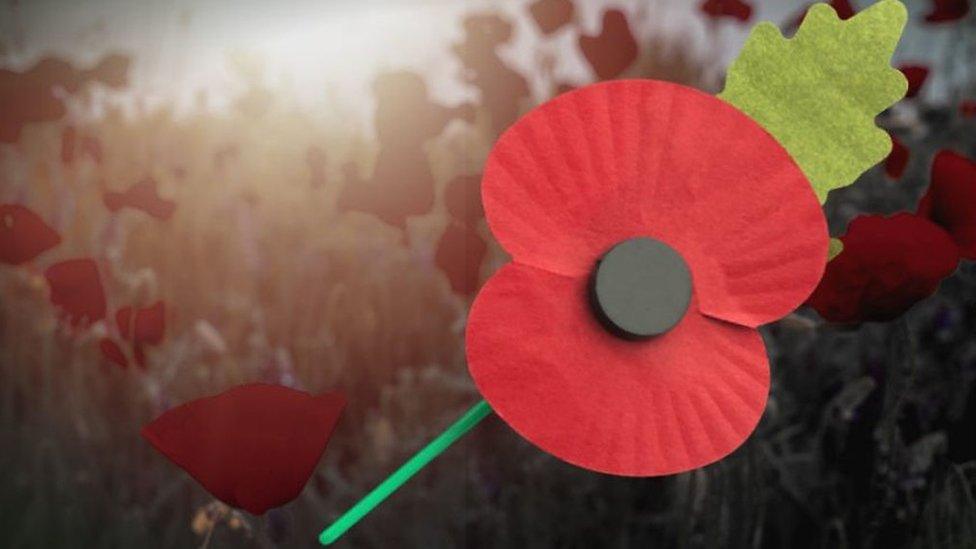World War One: Theresa May pays respects in France and Belgium
- Published
Theresa May met the leaders of France and Belgium for Armistice remembrance ceremonies.
Theresa May has used the words of World One War poets to pay tribute to fallen soldiers in France and Belgium.
Visiting the St Symphorien Military Cemetery in Mons with the Belgian prime minister, she laid wreaths at the graves of the first and last UK soldiers killed in the war.
Using words from a 1914 poem, she thanked those who died for being "staunch to the end".
Her visit comes ahead of the Armistice Centenary this Sunday.
During her trip to France, she and French President Emmanuel Macron paid their respects at the Thiepval Memorial, which commemorates more than 72,000 British and Commonwealth soldiers.
Mr Macron's British great-grandfather, Bristol-born butcher George William Robertson, fought at the Somme and was decorated for bravery. He stayed in France after the war.

The Armistice 100 years on

Long read: The forgotten female soldier on the forgotten frontline
Video: War footage brought alive in colour
Interactive:, external What would you have done between 1914 and 1918?
Living history: Why 'indecent' Armistice Day parties ended

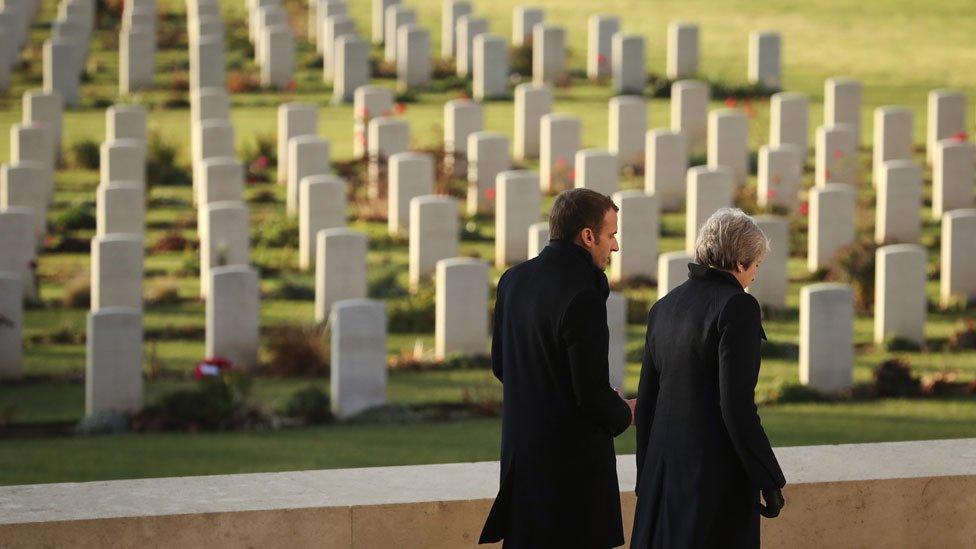
The prime minister visited a French cemetery on Friday afternoon
In the ceremony at Mons on Friday morning, the prime minister - accompanied by Belgian Prime Minister Charles Michel - laid wreaths at the graves of Londoner John Parr, the first UK soldier to be killed in 1914, and the last, George Ellison.
Mr Ellison, who was born in York and lived in Leeds, was killed on the Western Front at 09:30 GMT, before the Armistice came into effect at 11:00, 100 years ago this Sunday.
The two men's graves are opposite each other at the cemetery.
Messages on poppy wreaths were taken from poems, with the one on Mr Ellison's grave bearing lines from Laurence Binyon, reading: "They were staunch to the end against odds uncounted. We will remember them."
Mrs May chose lines from Rupert Brooke's sonnet The Soldier for Mr Parr's grave, writing "in that rich earth a richer dust concealed".
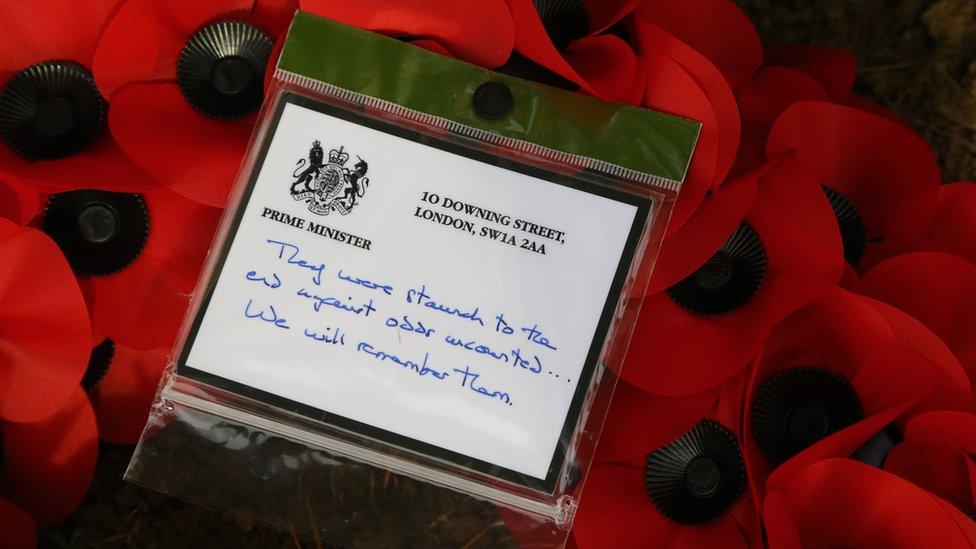
Mrs May quoted a 1914 poem by Laurence Binyon, in a card left at the grave of George Ellison
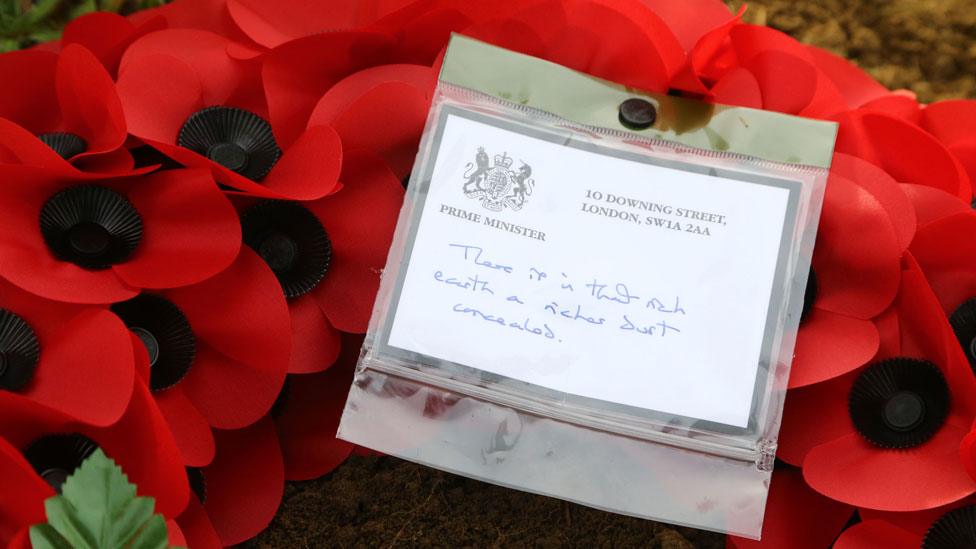
Lines from a Rupert Brooke poem were written on the card left at Mr Parr's grave
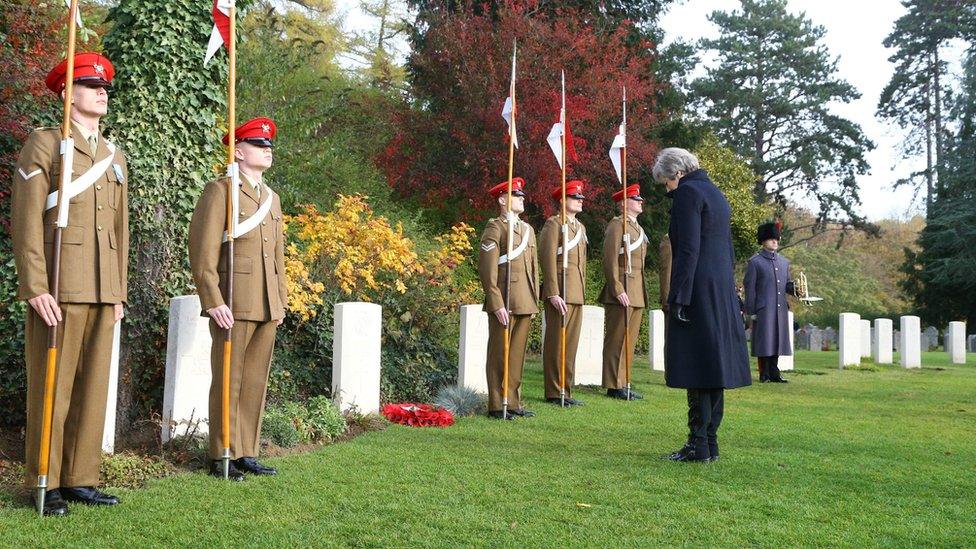
Theresa May bowed her head at the grave of Private Ellison, the last British soldier to be killed in the war
On the way to the cemetery in Mons, a policeman on a motorbike was hurt when a vehicle tried to drive between Mrs May and Mr Michel's convoys - not realising there were two separate convoys.
A spokesman for Mr Michel said the policeman and another officer, who was also on a motorbike, "had to manoeuvre so as not to crash into that car" and "narrowly escaped crashing into the Belgian prime minister's vehicle".
The officer fell off his bike and was "injured but not heavily so", the spokesman said. Mr Michel got out of his car to make sure the policeman was OK and waited for an ambulance to arrive.
Mrs May and her companions were in front so did not see what happened but were briefed afterwards.
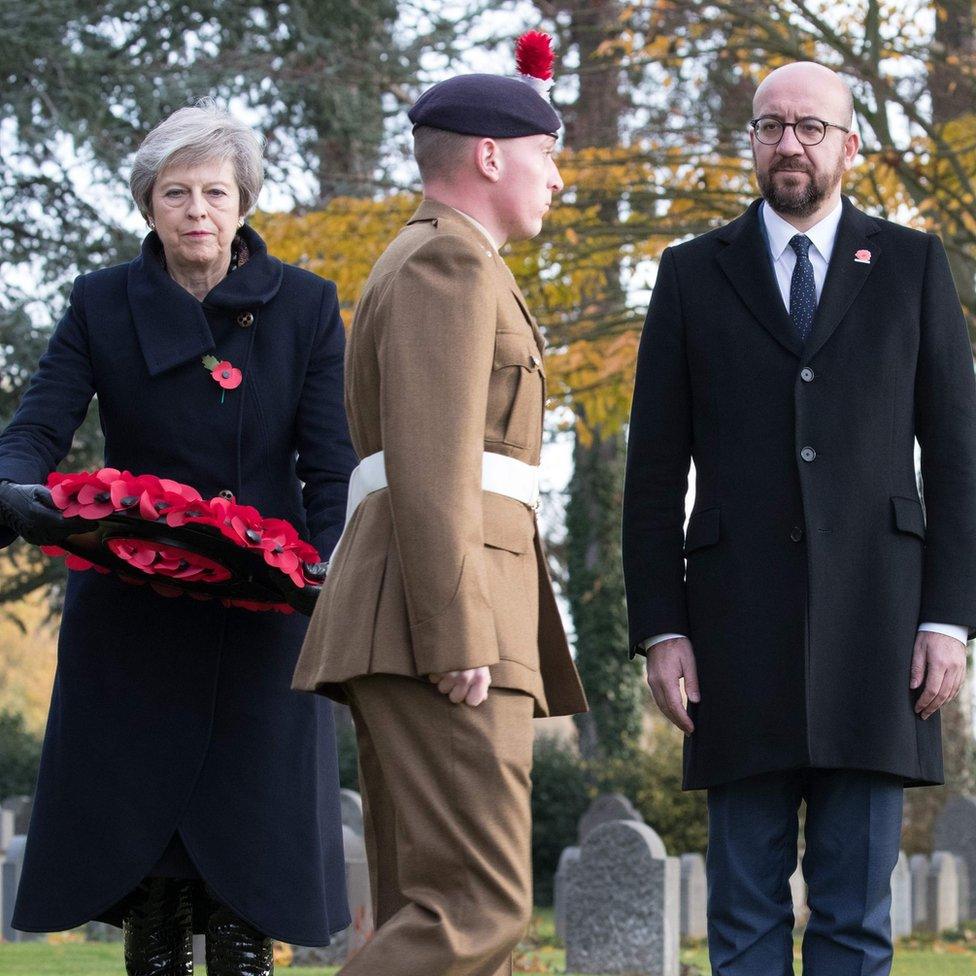
Mrs May stood alongside Belgium's Prime Minister Charles Michel at the ceremony at the St Symphorien Military Cemetery
Mrs May and Mr Michel later attended a reception, where they met British and Belgian serving members of the armed forces.
The prime minister then travelled to France to meet Mr Macron in Albert, a town in the heart of the Somme region of France which suffered heavy bombardment during World War One.
Mrs May and the French president had a private meeting and working lunch before attending the war cemetery.
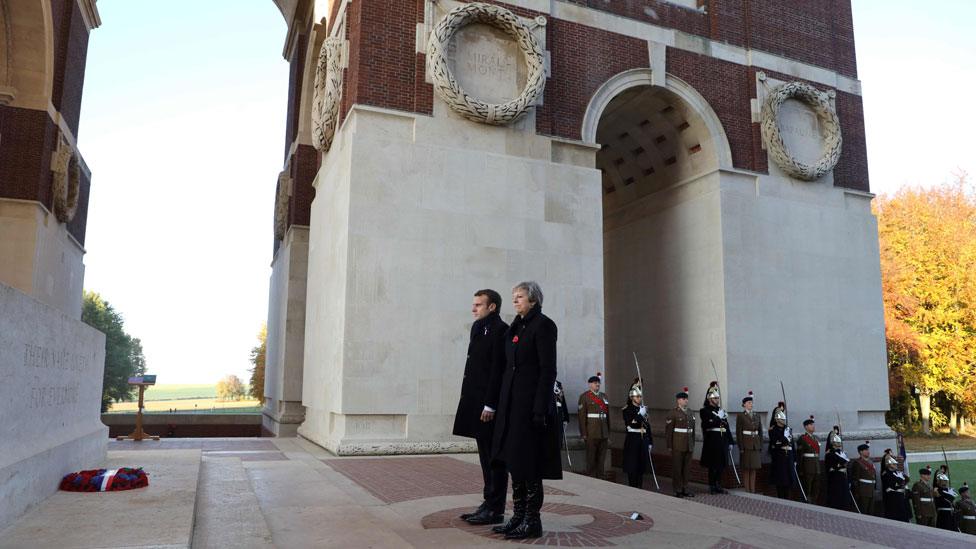
The two leaders laid a wreath at the French-British memorial at Thiepval in northern France
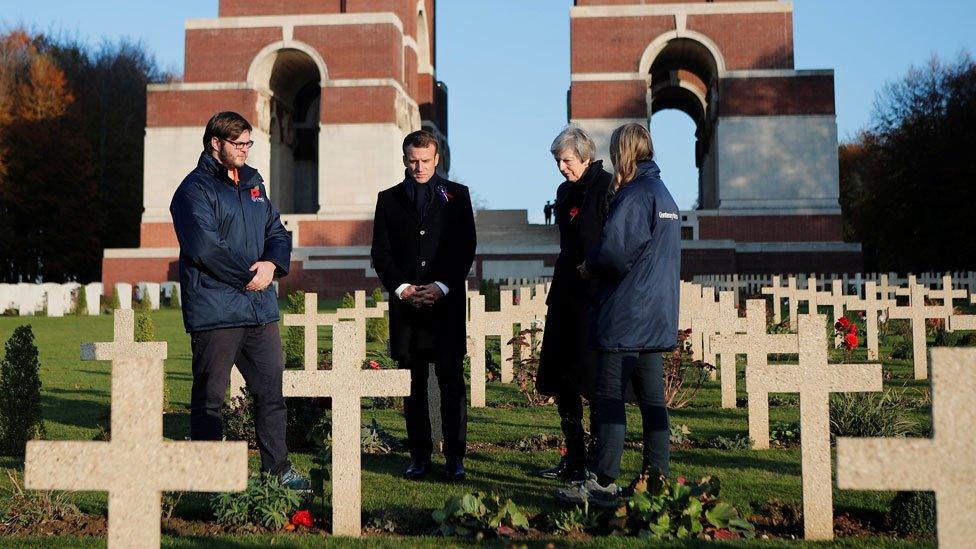
The pair were also shown graves at the cemetery
The two leaders then attended a wreath-laying ceremony at the nearby Thiepval Memorial.
A wreath combining the poppy and le bleuet (or cornflower) - the two national emblems of remembrance for Britain and France - was made for the occasion.
On the wreath, Mrs May left a card with an extract from poem A Soldier's Cemetery by Sergeant John William Streets, reading: "There lie the flower of youth, the men who scorn'd to live (so died) when languished liberty."

Mrs May said the visit was a chance to reflect on the time the countries spent fighting side by side in Europe, but also to look ahead to a "shared future, built on peace, prosperity and friendship".
She said the ceremony at Mons was "a fitting and poignant symbol" for "every member of the armed forces who gave their lives to protect what we hold so dear".
"We remember the heroes who lost their lives in the horror of the trenches. As the sun sets on 100 years of remembrance, we will never forget their sacrifice."
How do Germans remember the World Wars?
- Published9 November 2018
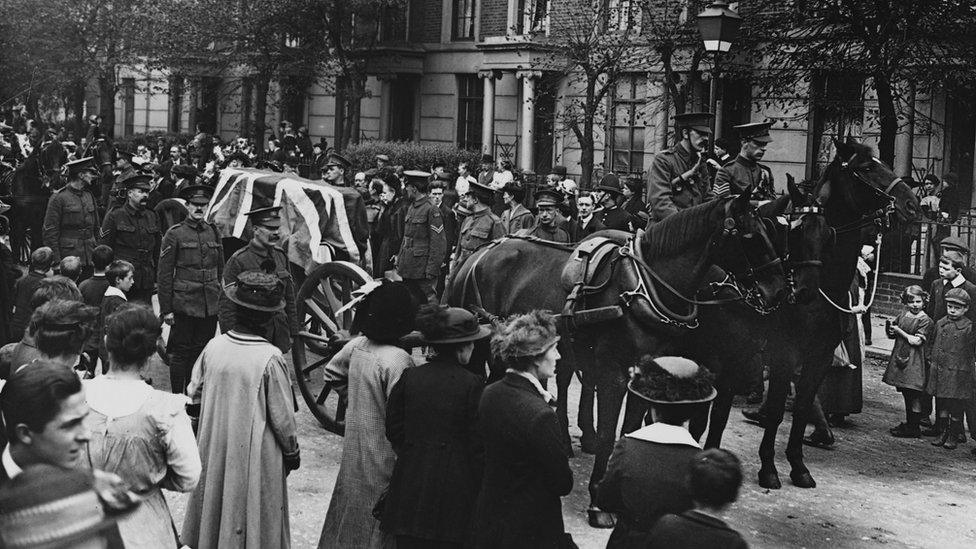
- Published8 November 2018
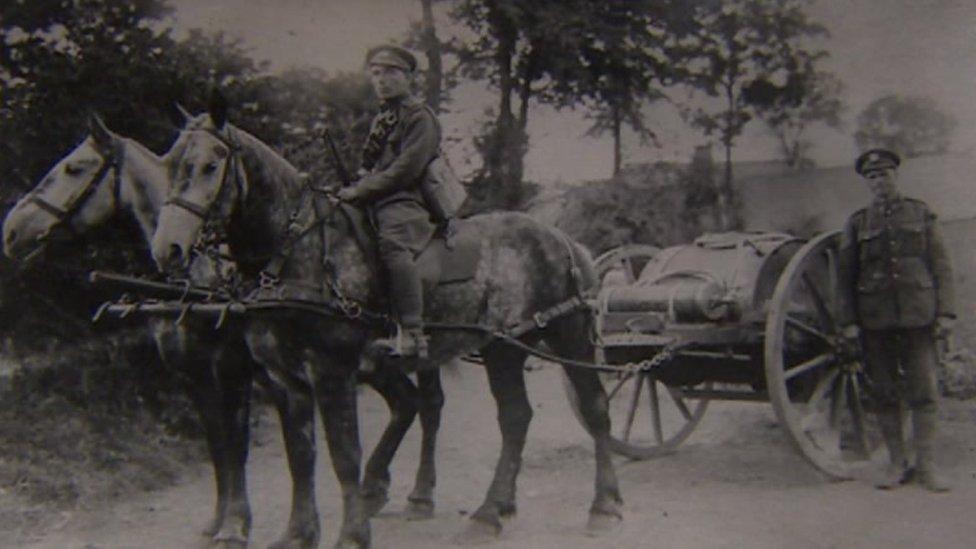
- Published8 November 2018
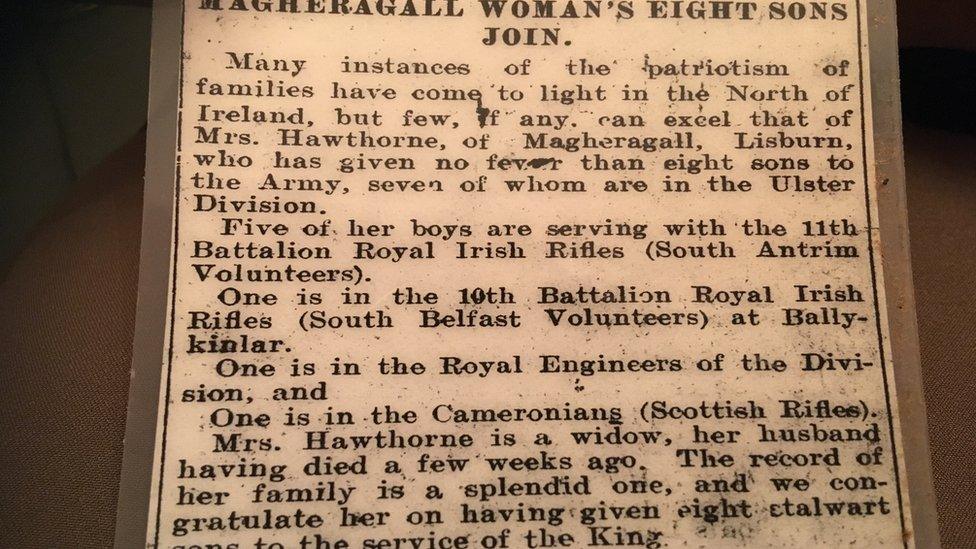
- Published8 November 2018
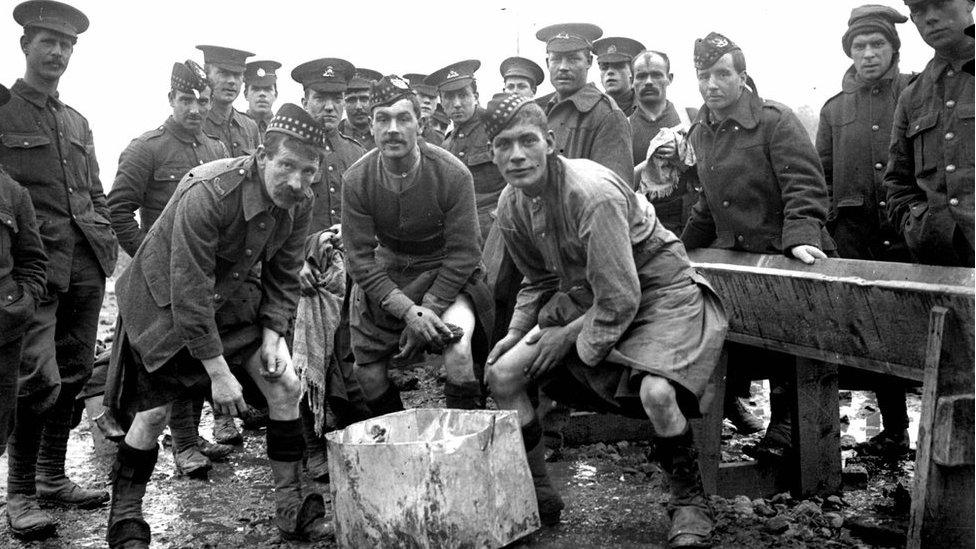
- Published7 November 2018
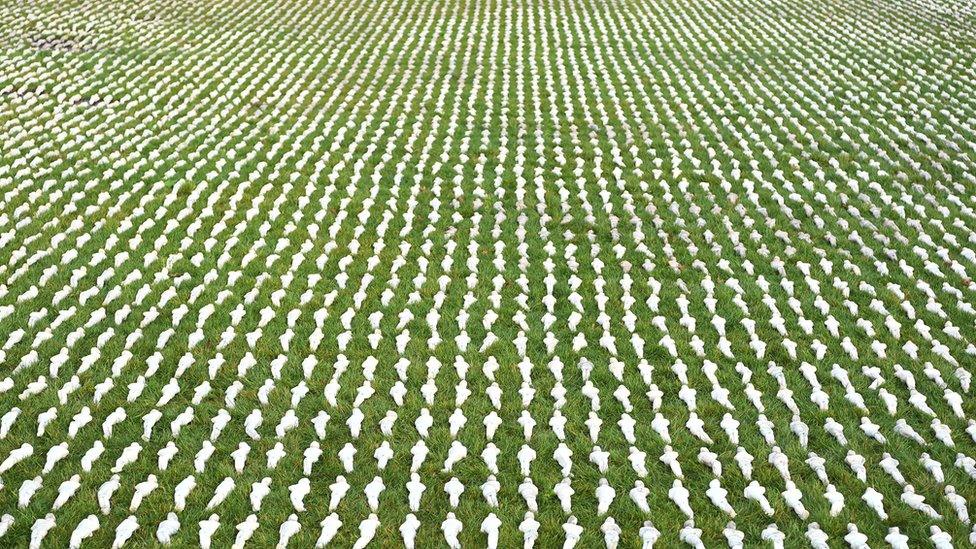
- Published8 November 2018
